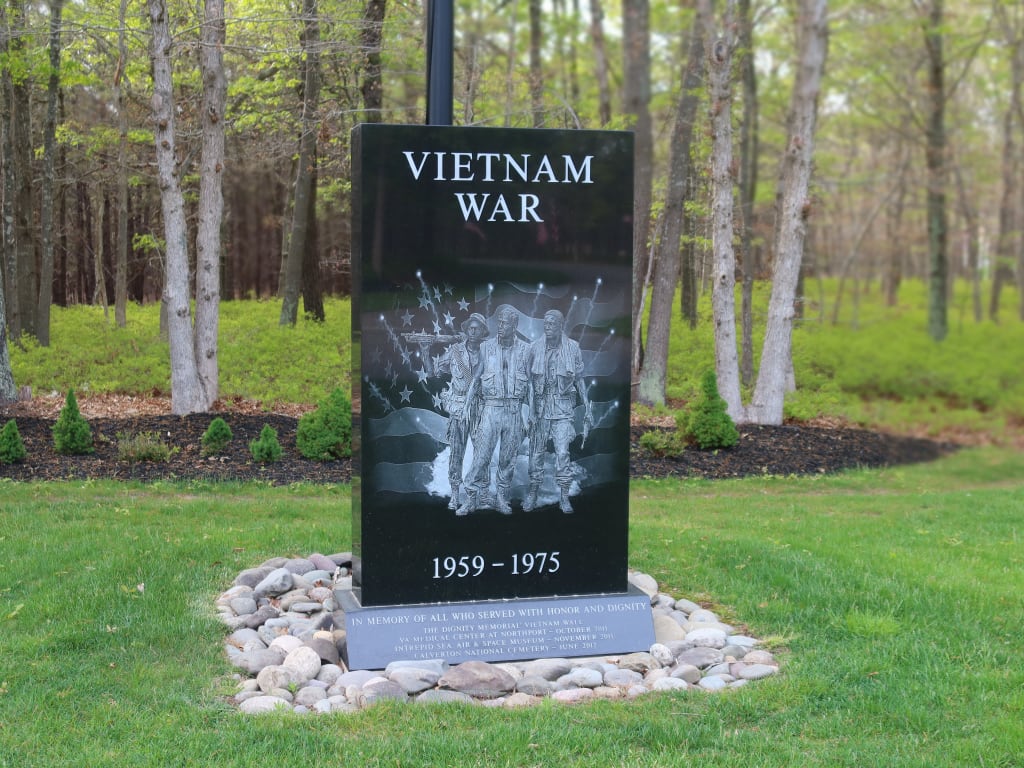
The Vietnam War remains one of the most significant and contentious conflicts in modern history. As time passes, it becomes increasingly important to remember and learn from the events of the war. In a world marked by ongoing conflicts and political tensions, reflecting on the Vietnam War can provide valuable insights and lessons for the present and future.
Historical Context: A Turbulent Era
A Clash of Ideologies: Understanding the background of the Vietnam War
The Vietnam War was deeply rooted in the clash of ideologies during the Cold War era. The conflict emerged as a struggle between communist North Vietnam and the democratic South Vietnam. The underlying ideological differences between these two regions, combined with political and economic factors, fueled the escalation of the war.
The Domino Theory and Escalation: How the conflict grew in scale and intensity
The United States, driven by the fear of communism spreading throughout Southeast Asia, subscribed to the Domino Theory. This theory posited that if one country fell to communism, neighboring countries would also follow suit. As a result, the U.S. gradually increased its military involvement, escalating the war and introducing American troops to the conflict.
Key Players: The involvement of the United States, North Vietnam, and South Vietnam
The United States, as a Cold War superpower, saw the Vietnam War as an opportunity to contain the spread of communism. North Vietnam fought for the reunification of the country under communist rule, while South Vietnam aimed to preserve its independence and democracy. The involvement of these major players shaped the trajectory of the war and its ultimate outcome.
Impact on Vietnam: A Nation Transformed
Lives Lost and Communities Shattered: Examining the human cost and casualties
The Vietnam War resulted in a staggering loss of life. Millions of Vietnamese people, both soldiers and civilians, lost their lives during the conflict. Families were torn apart, villages destroyed, and communities left in ruins. The war's toll on the Vietnamese people was immeasurable, leaving scars that continue to resonate today.
Ravaged Landscapes: Environmental and infrastructural destruction
The war left a devastating impact on Vietnam's landscapes. Bombs, defoliants like Agent Orange, and the widespread use of landmines caused severe damage to the environment. The destruction of infrastructure, including roads, bridges, and buildings, hindered the country's recovery and development for years to come.
Resilience and Cultural Transformation: Long-term effects on Vietnamese society
Despite the immense suffering endured, the Vietnamese people demonstrated remarkable resilience. The war brought about significant social and cultural transformations, shaping the country's identity. It sparked a spirit of unity, nationalism, and determination to rebuild and move forward. Today, Vietnam stands as a testament to the indomitable human spirit.
Impact on the United States: A Nation Divided
The Price of War: Counting American lives and wounded soldiers
The Vietnam War claimed the lives of over 58,000 American soldiers, with many more returning home physically and mentally wounded. The war's toll on families, communities, and the nation as a whole was profound. The sacrifices made by American servicemen and women during the war remain an integral part of the nation's history and memory.
Political and Social Upheaval: Consequences of the war on domestic affairs
The Vietnam War had a significant impact on American society and politics. It fueled a deep divide within the country, pitting supporters of the war against those who vehemently opposed it. The anti-war movement gained momentum, leading to protests, social unrest, and a reevaluation of U.S. foreign policy. The war became a defining moment for a generation and left a lasting imprint on American culture.
Shaping America's Role: Influence on foreign policy and military interventions
The Vietnam War fundamentally altered the United States' approach to foreign policy and military interventions. The war's perceived failures and the public's disillusionment with its outcome prompted a shift towards more cautious and diplomatic strategies. The lessons learned from Vietnam continue to shape America's approach to global conflicts and interventions.
Lessons Learned: Unearthing Truths
Questioning Motivations: Analyzing the reasons behind U.S. involvement and the outcomes
Remembering the Vietnam War prompts us to critically examine the motivations behind U.S. involvement. It encourages us to reflect on the complex interplay of political, ideological, and strategic factors that shaped the decision to wage war. Through this analysis, we gain a deeper understanding of the consequences of hasty or ill-conceived military interventions.
The Power of Dissent: Reflecting on the anti-war movement and its impact
The anti-war movement during the Vietnam War demonstrated the power of dissent and the importance of questioning authority. It fostered a spirit of activism, civil discourse, and democratic participation. Remembering this period reminds us of the need to uphold the right to protest and encourages us to challenge decisions that may lead to unnecessary conflicts.
Shaping Future Conflicts: The enduring legacy of the Vietnam War
The Vietnam War's legacy extends far beyond its immediate impact. It continues to shape how we approach and learn from subsequent conflicts. The lessons learned from Vietnam, such as the limitations of military might and the importance of understanding local contexts, have influenced subsequent military strategies and interventions. Remembering the war's lessons is crucial for avoiding repeating the same mistakes in the future.
Commemoration and Memorials: Preserving History
Hallowed Grounds: Major memorials and museums dedicated to the Vietnam War
Numerous memorials and museums stand as testament to the Vietnam War's significance and the need to remember its history. The Vietnam Veterans Memorial in Washington, D.C., the Vietnam War Memorial in Hanoi, and other sites around the world serve as places of remembrance, providing a physical space to honor and pay tribute to those affected by the war.
Honoring Veterans: The importance of remembering and respecting their sacrifices
Remembering the Vietnam War is a way to honor the bravery and sacrifices of the veterans who served. It provides an opportunity to express gratitude for their service and acknowledge the challenges they faced during and after the war. Remembering veterans fosters a sense of appreciation and reminds us of the human toll of war.
Healing Through Remembrance: The role of memorials in promoting closure and understanding
Memorials play a vital role in healing the wounds of war. They provide spaces for reflection, commemoration, and reconciliation. Remembering the Vietnam War helps foster understanding, empathy, and closure for individuals and communities affected by the conflict. Memorials serve as a bridge between the past and the present, offering solace and promoting healing.
Remembering the Vietnam War Today: Stories That Echo
Veterans' Experiences: Listening to firsthand accounts and personal narratives
The stories and experiences of Vietnam War veterans are invaluable in understanding the human dimensions of war. Listening to their firsthand accounts provides a deeper appreciation for the sacrifices made and the challenges faced by those who served. Preserving and sharing these narratives ensures that the personal impact of the war is not forgotten.
Passing the Torch: The significance of oral history for future generations
As time passes, it becomes increasingly important to preserve the oral history of the Vietnam War. Recording and sharing the stories of veterans and witnesses allows future generations to learn directly from those who experienced the war. Oral history serves as a powerful educational tool, ensuring that the lessons of the past are not lost or distorted.
Educating Through Engagement: Initiatives and resources for teaching about the war
Educational initiatives and resources dedicated to the Vietnam War play a vital role in remembering and learning from the conflict. Books, documentaries, online archives, and classroom curricula provide avenues for engaging with the war's history. By incorporating the Vietnam War into educational materials, we ensure that its significance is passed on to future generations.
Reconciliation and Healing: Finding Peace
Bridging Divides: Efforts towards reconciliation between the United States and Vietnam
In the decades since the war, significant efforts have been made towards reconciliation between the United States and Vietnam. Diplomatic visits, cultural exchanges, and economic cooperation have contributed to healing the wounds of the past. Remembering the war with empathy and understanding fosters goodwill between nations and promotes a sense of shared humanity.
The Healing Power of Remembrance: Fostering healing and closure for affected communities
Remembering the Vietnam War offers an opportunity for affected communities to find healing and closure. Acknowledging the pain, loss, and trauma allows individuals and communities to move forward. Through remembrance, we can build bridges and create spaces for dialogue and understanding, paving the way for reconciliation and a brighter future.
Promoting Peace and Understanding: The role of remembering the past in shaping a better future
Remembering the Vietnam War ultimately serves as a reminder of the importance of peace, diplomacy, and understanding. By reflecting on the mistakes and consequences of the war, we can strive to build a more peaceful and just world. Remembering the past empowers us to work towards preventing future conflicts and promoting cooperation among nations.
Embracing the Legacy
The Vietnam War continues to shape our world, offering a multitude of lessons for humanity. By remembering the war, we honor those who sacrificed and gain valuable insights into the complexities of war and its aftermath. Let us remain committed to preserving the memories and lessons of the Vietnam War, ensuring that history never fades and that we forge a more peaceful and understanding future. Through remembrance, we can strive to build a world where the mistakes of the past are not repeated and where peace and reconciliation prevail.






Comments
There are no comments for this story
Be the first to respond and start the conversation.